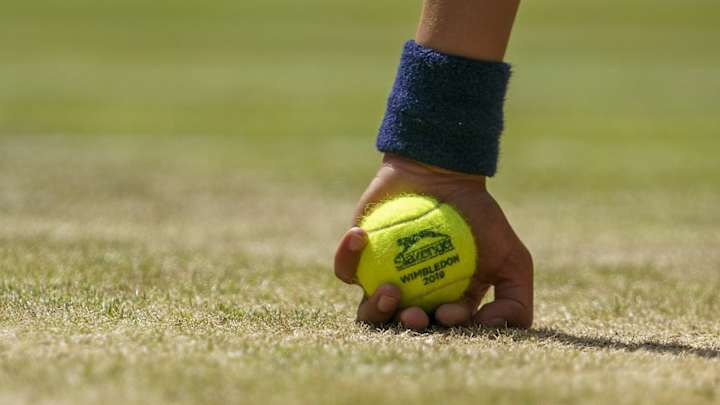Pandemic Insurance Bailed Out Wimbledon; Could It Have Done the Same for MLB?

One thing that the current negotiations between owners and players over the near-term future of Major League Baseball is that there is no shortage of lawyers and business MBAs in the room.
Those movers and shakers for MLB are supposed to look out for the best interests of the sport. Or at least you would have to think that’s why they’re there.
We bring this up because the current wrangling over money – money the owners say they are losing and the money the players believe they are entitled to – in an era of COVID-19 coronavirus pandemic could be much different with a more forward approach to disaster planning.
There will be no tennis at Wimbledon this year, but loss of revenue isn’t hurting the grandest of tennis’ Grand Slam events. That’s because Wimbledon’s movers and shakers had the foresight to spend around $1.9 million per year in pandemic insurance following the SARS outbreak in 2003.
According to a recent bulletin put out by GlobalData, the London-based platform that provides data analytics and analysis about the world's largest industries, Wimbledon shelled out about $32 million over the last 17 years. The payoff came this year with a check to Wimbledon for about $142 million.
The Wimbledon fortnight had revenues of $336 million in 2018, so it’s not on the level of MLB, which had revenues last year of about $10.7 billion. Then again, Wimbledon only lasts two weeks. And the pandemic insurance didn’t cover all of Wimbledon’s revenue losses for this year’s tournament.
But that $142 million blunted the blow, and MLB could use some of that kind of blunting right now.
MLB is talking about a 50-game 2020 season unless players agree to further pay cuts. The players are talking about a 114-game season, which would mean substantially larger paychecks.
If MLB had followed the Wimbledon lead, there could be much more flexibility about money, which would leave more time to focus on the real issue – keeping players and staff, stadium personnel and, eventually, fans healthy.
That’s important if, for no other reason, than the optics of making this all about money doesn’t play well with 20 percent of Americans having lost employment and seemingly that many in the streets day and night after the death of George Floyd at the hands of Minneapolis police.
The negotiations over health and safety should be front and center. They are in social distancing households across the country. And baseball should be on that bandwagon. A little foresight might have helped.
Follow Athletics insider John Hickey on Twitter: @JHickey3
Click the "follow" button in the top right corner to join the conversation on Inside the Athletics on SI. Access and comment on featured stories and start your own conversations and post external links on our community page.
